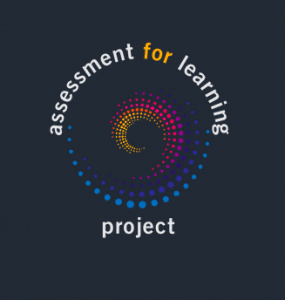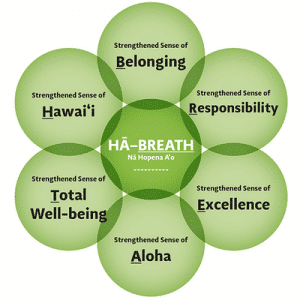Assessing for Equity
CompetencyWorks Blog
Assessment for Learning Project (ALP) is one of the most interesting, well-designed, and, based on the convening I just attended this week, best-managed initiatives I’ve seen. Kudos to NGLC, 2 Revolutions, and Center for Innovation in Education!
(ALP) is one of the most interesting, well-designed, and, based on the convening I just attended this week, best-managed initiatives I’ve seen. Kudos to NGLC, 2 Revolutions, and Center for Innovation in Education!
ALP was designed to fund a wide-ranging set of initiatives about assessment as we begin to unlock it from accountability, where it has been held hostage for several decades, and return it to its rightful place in the learning process. The initiative is driven by a learning agenda that allows a series of very different projects to inform and inspire us – all exploring different aspects of assessment.
ALP Learning Agenda
The ALP Learning agenda is based on the following five questions:
- How can assessment support a broader definition of student success?
- What assessment practices most effectively empower students to own and advance their learning?
- How can we most effectively build educator capacity to gather, interpret, and use evidence of student learning to enhance instruction?
- How does assessment for learning inform broader contexts of accountability, policy, and system design?
- How can we pursue equity through assessment for learning?
Each of these questions alone could be a full-blow learning agenda; together, they force us to take us a step back and really think about our assumptions underlying assessment. In listening to the conversations at ALP, a few ideas that have been percolating in the back of my mind jumped forward.
- Assessment really does have a foot in both the cycle of learning and any efforts related to understanding the effectiveness of the education system itself (i.e., external accountability). The trick is to maintain its integrity within the cycle of learning while informing external accountability.
- We talk about assessment as a noun when I’m becoming convinced it should be used as a verb. We should really be focusing on assessing as a process that students and teachers do to reflect on how students are learning and what needs to happen next. When we think of assessment as a noun it keeps us thinking about the tools of the trade, such as tests, when our primary need right now is to build our skills and clarify the processes used in gaining insight regarding what students understand, what they can do, and where there might be gaps, weak understanding, and misconceptions that need to be addressed.
Assessment for Equity
In opening the discussion on equity, Sarah Lench of Center for Innovation in Education stated, “If ALP is inviting educators to fundamentally rethink the role of assessment for learning, then we’re are also rethinking the role of assessment for equity.” Many of us found the phrase “assessment for equity” mind-opening: Instead of thinking about assessment and then adding on issues related to equity and implications for sub-groups of students, why not just think of equity first? It forces us to think about all the sub-groups of students first, and I believe that any general ideas would also hold true for sub-groups. (And if they don’t, then we really need to question them anyway.) I ended up wondering why not just organize all of our thinking around equity: Assessment for equity? Instruction for equity? Budgets for equity? Scheduling for equity?
Focus of the Grantees
ALP’s grantees are focusing on a number of ways to strengthen and deepen the process of assessing learning: richer and deeper assessments; student participation in assessment, such as self assessment, peer feedback, and building agency; learning progressions; culturally responsive assessment; and scaling performance assessments. Below are highlights of two projects that caught my attention.
The Hawai‘i State Department of Education (HISDE) has led the effort to create a culturally aligned framework of six outcomes “to be strengthened in every student over the course of their K-12 learning journey” called HĀ or, when using English, form the word BREATH. The six outcomes are belonging, responsibility, excellence, aloha (care and respect for families and communities), total well-being, and (strengthened sense of) Hawai’i. HISDE is working with 2Revolutions to develop processes and tools to support implementation. (You can learn more about HĀ in this article from McRel.)
Summit Public Schools is developing a research-based framework for assessing their Habits of Success (which include social emotional learning, academic mindsets, learning strategies, and self-directed learning). They have organized twenty-nine skills into three domains: mindsets, social and emotional, and self-directed learning strategies.
Mindsets
- Growth mindset
- Self-efficacy
- Sense of belonging
- Relevance of school
Social and Emotional
Self awareness and self management
- Self awareness and self management
- Self advocacy
- Self reliance
Social awareness and interpersonal
- Social awareness
- Navigating differences
- Interpersonal interactions
- Conflict management
Decision-making and responsible behaviors
- Decision-making
- Responsibility
- Community contribution
Self-Directed Learning Strategies
Meta level
- Goal setting
- Planning
- {Showing learning}
- reflection
Self-directed learning behaviors
- Strategy shifting
- Appropriate help seeking
- Challenge seeking
- Persistence
Learning strategies
- Time management
- Test taking
- Memorization/recall
- Studying
- Strategic reading
- Collaborative learning
- Note taking
- Check for understanding
Summit is seeking to make sense of all the skills related to lifelong learning and embedding them into their learning process and platform. I’ve been fascinated (and a bit worried) about all the different types of skills that we are identifying as important in helping students become lifelong learners. We have moved away from approaching students through an academics-only lens, as if memorizing content in the academic domains was all there was to learning, to a very holistic and much more research-based understanding of how learning happens. But now we risk a laundry-list of skills without fully understanding how they interact and develop over childhood into young adulthood. For example, expecting students to persist in learning algebra when they don’t know and aren’t receiving instruction for learning fractions is nonsensical and most likely harmful.
Summit is looking deeply at the research and is figuring out how to engage teachers and students in developing these skills. They are both humble and candid about the challenges in building out this capacity of their model – which means we will all have a lot to learn from them along the way.
– – –
There is so much to learn from the ALP team and grantees. We’ll need to figure out a way to draw out their insights. Bottom line: Their work is a reminder to all of us that we need to take a step back from how we’ve been thinking about assessment to breathe some life back into it. In that way, we are all involved in inquiry about how we know what students know and how that informs how we can provide even better instruction and learning experiences so they can continue to learn and grow.
See also: